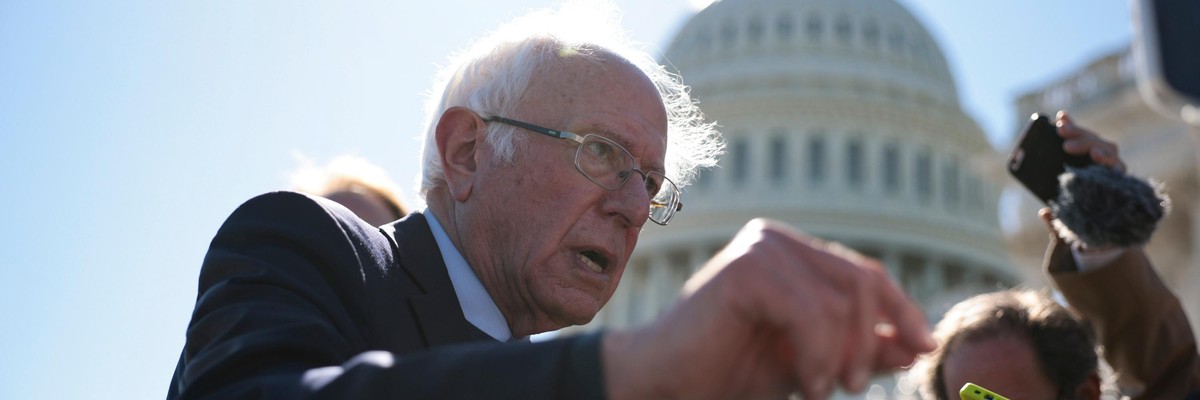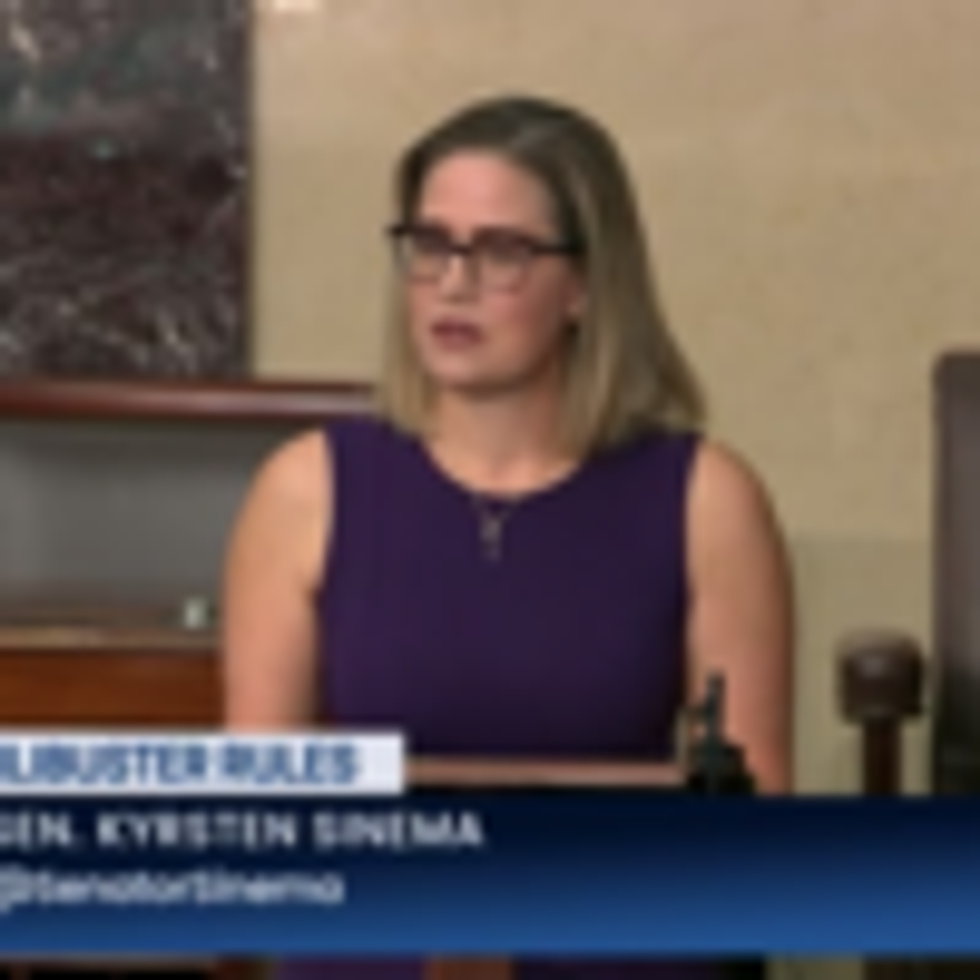Sen. Bernie Sanders said Friday that by vowing to uphold the archaic Senate rule standing in the way of voting rights legislation, his colleagues Joe Manchin and Kyrsten Sinema are putting "the future of American democracy" at risk.
"It is a sad day when two members of the Democratic caucus are prepared to allow the Freedom to Vote Act to fail," the Vermont senator tweeted. "I hope very much they will reconsider their positions."
Sinema (D-Ariz.) and Manchin's (D-W.Va.) opposition to weakening the 60-vote filibuster rule--a stance they reiterated Thursday--effectively tanks their party's hopes of passing voting rights legislation to thwart the GOP's mass disenfranchisement and election subversion efforts in states across the country.
Despite the likelihood of failure, Majority Leader Chuck Schumer (D-NY.) said the Senate will debate the newly assembled Freedom to Vote: John R. Lewis Act on Tuesday, a day after the federal holiday honoring Martin Luther King Jr.
"If Senate Republicans choose obstruction over protecting the sacred right to vote--as we expect them to--the Senate will consider and vote on changing the Senate rules, as has been done many times before, to allow for passage of voting rights legislation," Schumer said in a floor speech after Sinema made clear she would not back any such changes, intensifying calls for a 2024 primary challenge.
The support of every member of the Senate Democratic caucus and a tie-breaking vote from Vice President Kamala Harris would be needed to enact a rule change.
Related Content
'Shame on Her': Sinema Sparks Fury by Choosing Filibuster Over Democracy
Jake Johnson
With federal action likely not forthcoming, local Democratic officials and activists "now say they are resigned to having to spend and organize their way around" the slew of fresh Republican-authored voting restrictions, the New York Timesreported, "a prospect many view with hard-earned skepticism."
In a July letter to President Joe Biden, a coalition of 150 civil rights organizations wrote that "while we support the notion of a broad-based coalition of advocates, we cannot and should not have to organize our way out of the attacks and restrictions on voting that lawmakers are passing and proposing at the state level."
"Nor can we litigate our way out of this threat to democracy," the groups warned. "We must remember that at critical times in our history, one party has been forced to act alone in securing the fundamental democratic rights of American citizens, including Congress' passage of both the 14th and 15th Amendments. Any rule or procedure that functions to stop bills from ever being considered on the floor is not a procedure to promote debate; it is a procedure to promote gridlock."


